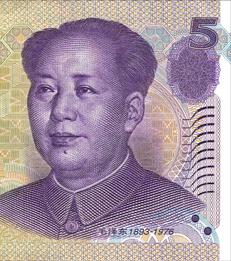Press Releases
Profs. Jennifer Carpenter & Robert Whitelaw Analyze the Real Value of China’s Stock Market
—


Contrary to perception, the Chinese stock market has performed surprisingly well, especially its small and medium enterprises.
In new research that analyzes data from China’s stock market from 1995 to 2012, NYU Stern Professors Jennifer Carpenter and Robert Whitelaw, along with undergraduate student Fangzhou Lu, find that despite its reputation as a “casino,” China’s stock market has functioned well by several measures: 1) the prices of stocks in China are as informative about future earnings as those in the US; and 2) Chinese investors price stock characteristics the same way as investors in developed markets. In addition, they find that the Chinese stock market exhibits low correlation with other equity markets, and offers high alphas for US and global investors who can access them.
Key insights from the paper include:



To speak with Professor Carpenter or Professor Whitelaw, please contact Joanne Hvala or Jessica Neville in NYU Stern’s Office of Public Affairs at 212-998-0995 or jhvala@stern.nyu.edu or jneville@stern.nyu.edu
Key insights from the paper include:
- The signals carried in stock prices in China are as informative about future profits as those in the US and have improved since the reforms of 2001.
- The efficiency of corporate investment is highly correlated with stock price informativeness over time.
- Also, contrary to the “casino theory,” though it is a segmented (closed) market, China’s stocks exhibit pricing patterns that are similar to those in developed markets. Chinese investors pay up for liquidity, long shots, growth stocks and low systematic risk (i.e, beta).
- Contrary to perception, the Chinese stock market has performed surprisingly well, especially its small and medium enterprises.
- The low correlation of the Chinese stock market with other markets creates investing opportunities (high alphas) for US and global institutions that can access them.
- Furthermore, because its closed (segmented) market raises capital costs for Chinese firms, market liberalization would likely lower China’s cost of capital and fuel economic growth
- Continued legal and market reforms and integration with global markets would further empower the Chinese market to attract capital, allocate it efficiently, and support economic growth worldwide.



To speak with Professor Carpenter or Professor Whitelaw, please contact Joanne Hvala or Jessica Neville in NYU Stern’s Office of Public Affairs at 212-998-0995 or jhvala@stern.nyu.edu or jneville@stern.nyu.edu
